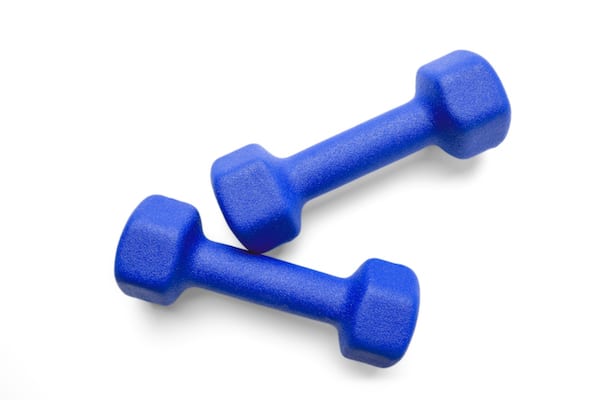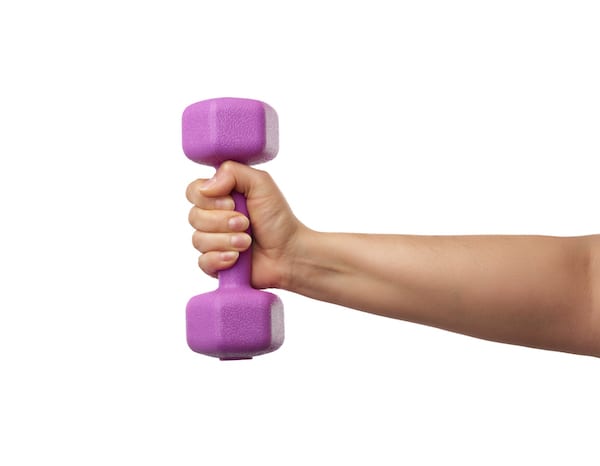How to Work Out With Light Weights

No heavy weights at home? No problem. You can still gain muscle, strength and endurance even without heavy resistance or hefty dumbbells like you’d normally use in the gym.
We spoke with Cody Braun, CSCS, about light weight workouts for major results during your at-home workouts.
Can I Get Stronger With Light Weights?

You sure can!
“A person can become stronger with lighter weights if they work at a higher rep range,” says Braun, who recommends 12 to 20 or more repetitions per exercise.
This type of lifting — using lighter weights for a longer period of time — works to build muscular endurance. Lifting with light dumbbells/weights and high reps won’t necessarily add a lot of mass or raw strength, but you will gain that endurance as well as functional strength, or strength for everyday activities.
“The more you do this muscular endurance-type training,” says Braun, “the more you’ll be able to perform functional activities for longer periods.”
How Do You Work Out With Light Weights?

When working with lighter weights, think less about building a ton of new muscle mass and more about building that endurance and keeping true and efficient form. Here are a few pointers.
1. Lift lighter weights to fatigue
Just like you might do with heavier weights, make sure that you are doing an exercise to fatigue. That might mean choosing a weight that becomes very hard near the end of your reps. If that is still too easy with whatever light set of weights you have (even homemade weights), keep going until your muscles become truly tired.
2. Add in new moves
Performing new movement patterns will allow you to gain some strength neurologically, Braun says. So as your body and brain learn how to do the proper form for a new movement, you’ll be able to slowly add more weight as you become more capable. Try new moves in live classes or opt for a whole new routine, like XB Pilates or Xtend Barre.
3. Focus on form
Even with tried-and-true exercises you’ve done a million times, slow down and focus on form. Push deeper, like in a proper squat, for example.
“Don’t just rush through the movement pattern, but focus on depth and having proper form with all parts of the exercise,” says Braun. “When you have proper form and aren’t sloshing through the movement, you are making your muscles work against the resistance. If you are rushing through it, you are really just using momentum at that point.”
4. Change up your tempo
For any strength training or resistance exercise, mix up the tempo at which you perform the exercise. In a resistance exercise, when you elongate the eccentric phase (the phase when you are lengthening the muscle, like bringing the weight back down from a dumbbell curl), you create microscopic damage to your muscles a little bit more even with lighter weights.
“You’ll get more muscular damage, which will allow you to get a little bit more out of the exercise,” Braun says.
For example, if you are doing a chest press with lighter weights and are aiming for 12 to 20 reps, lengthen the time from when your arms are fully extended to bringing the weights back down to your chest. Press back up at a regular tempo. The longer that eccentric phase takes, the more time under tension you are creating, which is a proven method for stimulating muscular growth.
5. Combine exercises
To fatigue even quicker, perform multiple compound exercises that hit more than one muscle group. For example, try a dumbbell biceps curl to an overhead press or add in some overhead presses with squats as well.
The more muscles you are engaging, the more calories you’ll burn. This approach can also shorten your workouts as you engage more muscle groups per exercise.
